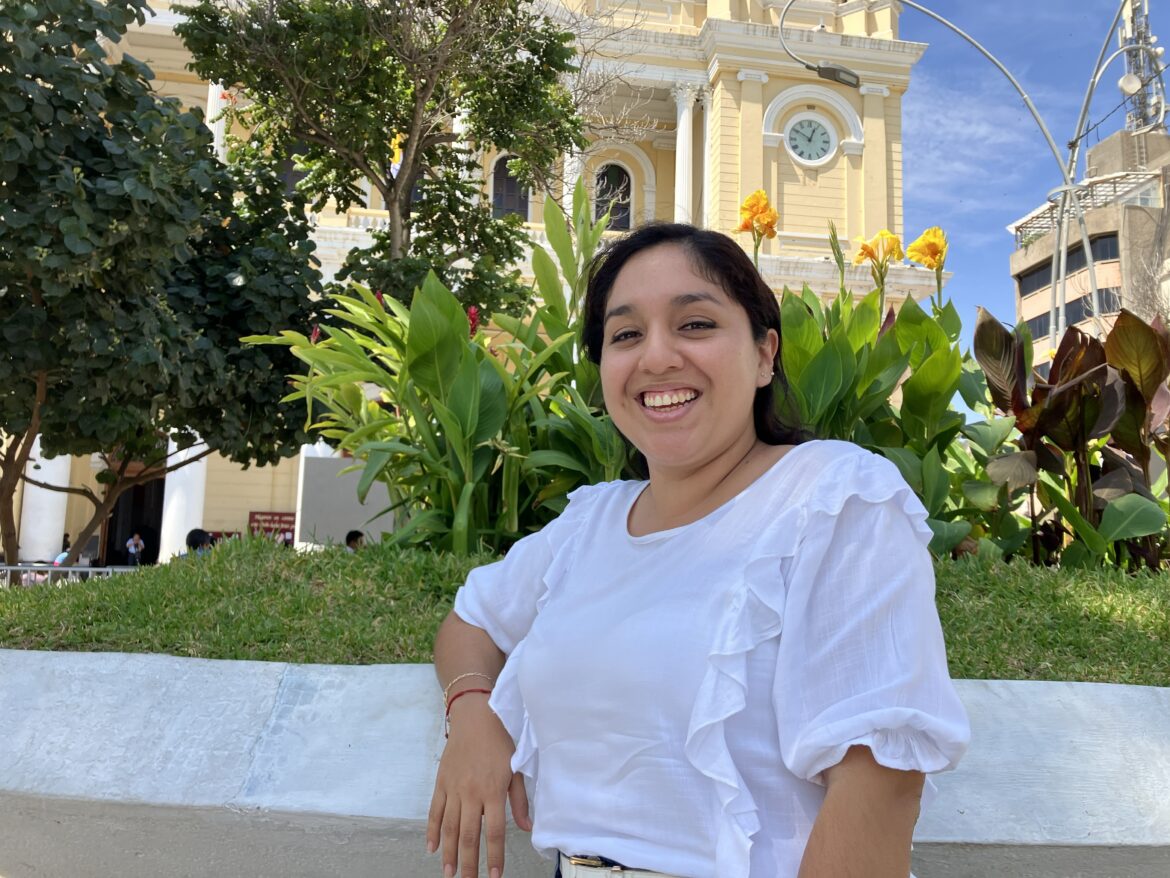CHICLAYO, Peru (OSV News) — Young people in the former Peruvian diocese of Pope Leo XIV used to gather in a parish parking lot behind the bishop’s residence, where they would rehearse music and dance, worship and make noise into the night — all within earshot of then-Bishop Robert F. Prevost.
“We knew the priests would be upset” because the gatherings dragged on, recalled Cristina Nombera Bazán, former director of youth ministries in the Diocese of Chiclayo. But on one of those occasions, he surprised them. “He came out and told us, ‘This is great. Keep making a mess,'” using the words Pope Francis imparted to young people at World Youth Day 2013 in Brazil. “‘I want to see you involved; I don’t want to see you turned off.'”
Pope Leo heavily prioritized social ministries during his eight years as bishop of Chiclayo in northern Peru. He especially prioritized young people, dedicating time and attention to diocesan and parochial youth groups.
Service, Evangelization and Fellowship
Pope Leo emphasized service, evangelization and fellowship, according to people familiar with this involvement with youth groups. But he also emphasized Catholic social teaching. Nombera Bazán recalls the youth ministry planning for a day of cleaning garbage and plastic from a nearby beach — an activity Pope Leo used to promote Catholic social teaching.
He told them, “Please read an encyclical for me or a part of an encyclical that talks about that activity and reflect on why it is important to take care of the environment,” Nombera Bazán said. The youth group read “Laudato Si’,” Pope Francis’ encyclical on the environment, prior to heading to the beach. “He wanted us to become deeply involved with the social doctrine of the Catholic Church,” she told OSV News.
The pope became known in Chiclayo for confirmations — with many people proudly able to show photos of themselves or their children posing with him after he administered the sacrament. He also emphasized the catechism and properly preparing young people for confirmation, according to priests and young people.
“Sometimes, when he saw the young people in confirmation, he would say to me, ‘Have you prepared them well? Have you prepared the catechists well?'” said Father Ángel Peña, pastor of St. Martin of Tours Parish in Chiclayo.
‘He Was Just Another Young Person’
“He was very, very close to the young people,” Father Peña added. “He was just another young person among teenagers.”
Young people also volunteer as servers at a soup kitchen operated by the St. Martin of Tours Parish in the town of Reque, near Chiclayo. They also pitch in around the parish, organize projects to help the needy — such as bringing toys to children — and evangelize in the community.
“(Pope Leo) always looked for leadership in young people,” said Lucía Reupo Durano, a volunteer at the parish soup kitchen.
“He was very close to us. He accompanied us whenever we asked him to. And he was always very easy going. It wasn’t difficult to talk to him,” said Ximena Valdivia, the current director of youth ministries in the Diocese of Chiclayo. “Every time we had any activity, he checked to see if we had the financial means.”
Young People Are Present, Future Church
Youth ministries were not always the focus in Chiclayo. Parishes promoted youth groups and other social projects on the local level, but there was no diocesan push prior to Pope Leo’s arrival in 2015, Father Peña said. People involved with youth ministries say the pope saw young people as both the present and future of the church — and prone to leaving the flock if not formed properly in the faith.
Nombera Bazán traveled with her parish youth group to World Youth Day 2019 in Panama, where their bishop exhorted them to read the catechism.
He told them: “Start working and involving young people and bringing them a little closer to the doctrine,” she said. Speaking about DOCAT — a practical successor follow-up to YOUCAT, the very popular youth catechism based on the Catechism of the Catholic Church — Nombera Bazán said, “He made us take it out and say that we must prepare young people so that when they go out into the streets they are not future Protestants rather youth who are prepared, and know and defend their faith.”
He Spoke of Faith, Vocations
She added, “He sought to be a bishop who spoke of doctrine, who spoke of youth, but who also spoke of faith and vocations.”
Pope Leo was known for keeping homilies short and speaking with language and examples easy for the faithful to understand. Valdivia recalled a retreat shortly after the pandemic in which he cheerfully counseled participants, “Smile, Christ loves you.”
He also spoke of the parable of the prodigal son. “He told us that despite all the obstacles, all the problems that may arise, or that sometimes we feel we’re no longer apt for the path, we should never forget that the Lord is waiting for us with open arms and telling us no, that we should always smile,” she recalled. “Being happy is being able to transmit God. And he told us an anecdote from his mother’s house.”
David Agren writes for OSV News from Chiclayo, Peru.




